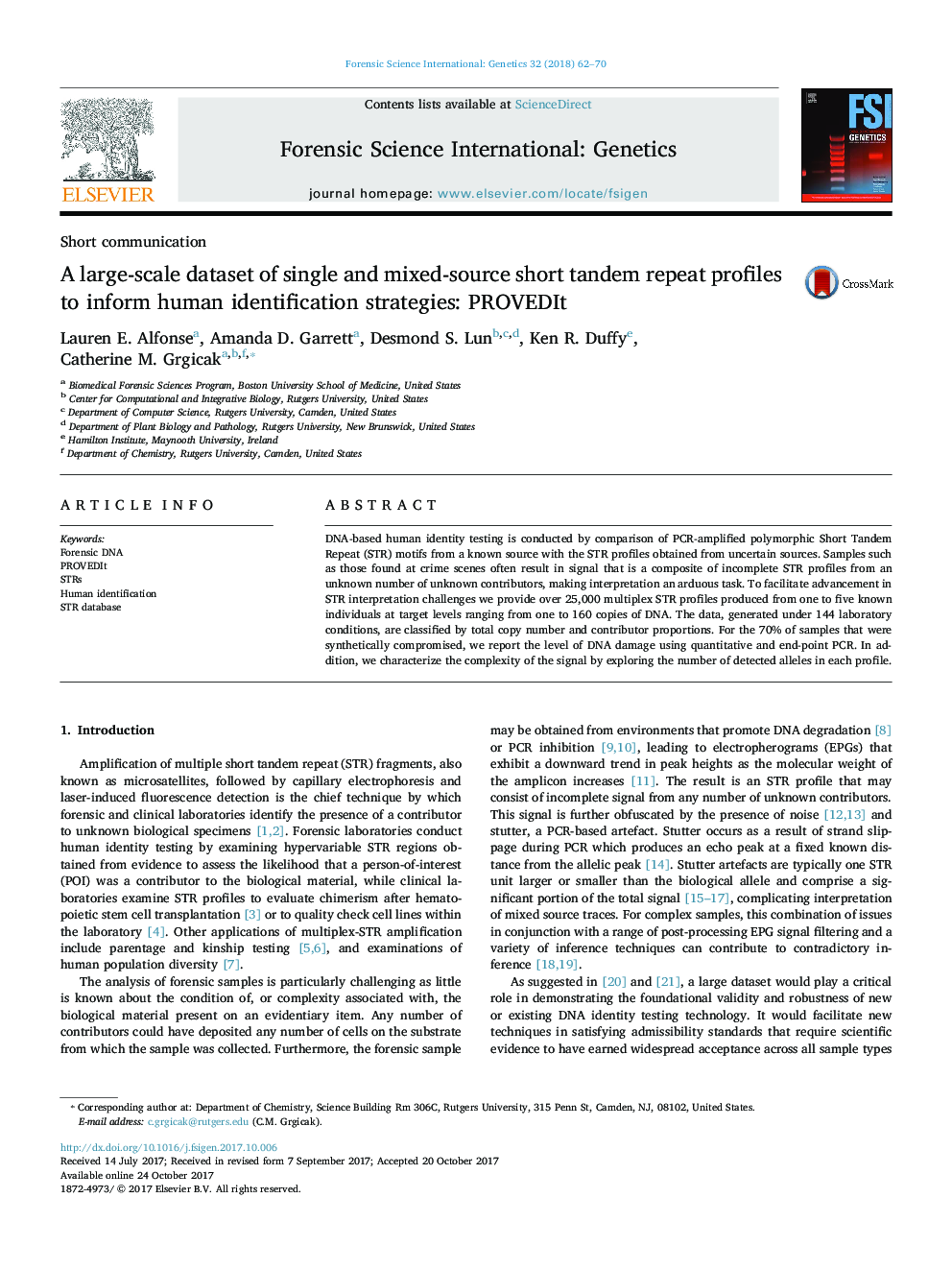| Article ID | Journal | Published Year | Pages | File Type |
|---|---|---|---|---|
| 6553362 | Forensic Science International: Genetics | 2018 | 9 Pages |
Abstract
DNA-based human identity testing is conducted by comparison of PCR-amplified polymorphic Short Tandem Repeat (STR) motifs from a known source with the STR profiles obtained from uncertain sources. Samples such as those found at crime scenes often result in signal that is a composite of incomplete STR profiles from an unknown number of unknown contributors, making interpretation an arduous task. To facilitate advancement in STR interpretation challenges we provide over 25,000 multiplex STR profiles produced from one to five known individuals at target levels ranging from one to 160 copies of DNA. The data, generated under 144 laboratory conditions, are classified by total copy number and contributor proportions. For the 70% of samples that were synthetically compromised, we report the level of DNA damage using quantitative and end-point PCR. In addition, we characterize the complexity of the signal by exploring the number of detected alleles in each profile.
Keywords
Related Topics
Life Sciences
Biochemistry, Genetics and Molecular Biology
Genetics
Authors
Lauren E. Alfonse, Amanda D. Garrett, Desmond S. Lun, Ken R. Duffy, Catherine M. Grgicak,
